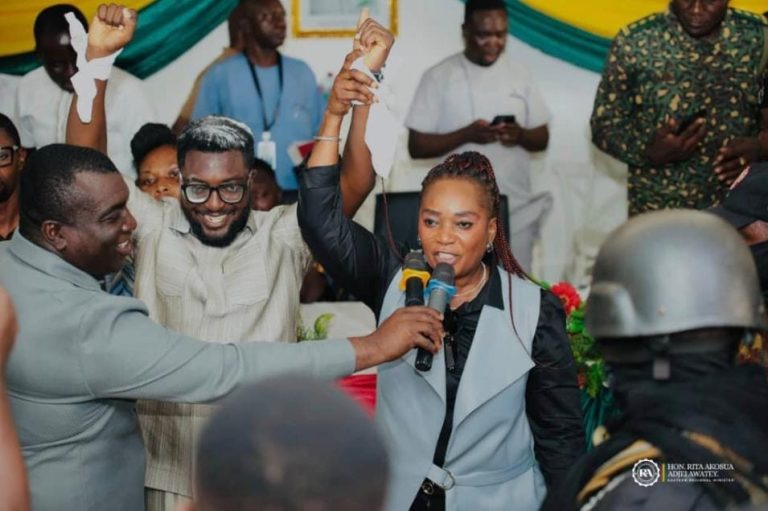A storm of controversy hit the Nsawam-Adoagyiri Municipal Assembly on Monday, May 12, as Fummey Selorm Philibert—President Mahama’s nominee and two-time National Democratic Congress (NDC) parliamentary candidate—was confirmed as Municipal Chief Executive (MCE) under disputed and dramatic circumstances.
What was supposed to be a democratic confirmation process instead turned into a scene of intimidation, disputed vote tallies, and alleged disregard for constitutional procedures, drawing harsh criticism from opposition leaders and local stakeholders.
A former NDC parliamentary candidate for the Nsawam-Adoagyiri Constituency in both the 2020 and 2024 elections, his political career has been marked by accusations of inciting violence and deep rivalry with incumbent MP Frank Annoh-Dompreh of the New Patriotic Party (NPP).
His 2024 parliamentary defeat ended in a court ruling that confirmed Annoh-Dompreh’s victory. That bitter political history laid the foundation for the tension and suspicion surrounding his nomination as MCE.
Disputed Results
Journalists were ordered to vacate the voting hall, raising early suspicions of lack of transparency.
According to accounts from multiple assembly insiders and observers, 42 members were scheduled to vote on the nominee.
As voting proceeded behind closed doors, reports not independently verified indicate that Selorm fell short of the required endorsement threshold, securing 20 “Yes” votes to 22 “No” votes.
However, before the Electoral Commission could officially declare the results, armed police reportedly acting on instructions descended on the venue.
Eyewitnesses say the EC’s returning officer, under visible pressure, declared Selorm as confirmed despite what they claim was an initial failure to meet the required majority.
The declaration was met with fierce protest by some assembly members and MP Annoh-Dompreh, who condemned the process as manipulated and unconstitutional.
Alleged Intimidation
Adding to the chaos, known landguards were allegedly spotted around the Assembly premises before the vote, creating a threatening atmosphere.
The heavy presence of security personnel and the perceived targeting of opposition figures, including the reported temporary restriction of MP Annoh-Dompreh, only intensified concerns of coercion.
While no physical violence was reported, the psychological impact of the perceived intimidation tactics appears to have influenced proceedings, with many witnesses describing the EC’s final declaration as made “under duress.”
In a statement released after the event, Annoh-Dompreh called the confirmation process “an embarrassing and disgraceful episode,” accusing the Electoral Commission and National Security of aiding what he called a stolen confirmation.
“You stole the election in such a clumsy manner… pathetic!” he declared.
Stakeholders
Several community leaders and stakeholders, including traditional authorities and former MCE Emmanuel Owusu Arthur, reportedly witnessed the disruptions.
A statement issued in the aftermath of the event strongly condemned what it described as a “disregard for democracy” and “inhumane optics.”
“The EC commenced a smooth election process, but when sorting was done and it became clear the nominee had lost, ballot papers were reportedly snatched by NDC elements,” the statement read.
“In full view of police, National Security, and the chiefs of Nsawam-Adoagyiri, the process was hijacked.”
Opposition members argue that the incident not only disrespected local leadership but also violated the spirit of the 1992 Constitution, which mandates the EC to conduct free and fair confirmation votes for local government appointments.
Celebration Amidst Protest
Despite the fierce backlash, NDC supporters celebrated Selorm’s confirmation with street jubilation, reportedly mocking NPP supporters.
Their actions have further inflamed tensions, with critics labeling the episode as emblematic of “mafia-style” political enforcement.
Looking Ahead
Though Selorm’s confirmation now stands, the incident has sparked a wider debate about political ethics, the role of security in electoral processes, and the future of decentralized democracy.
With opposition forces vowing to contest the legitimacy of the outcome and community leaders warning of long-term damage to civic trust, the fallout from the Nsawam-Adoagyiri saga is far from over.

